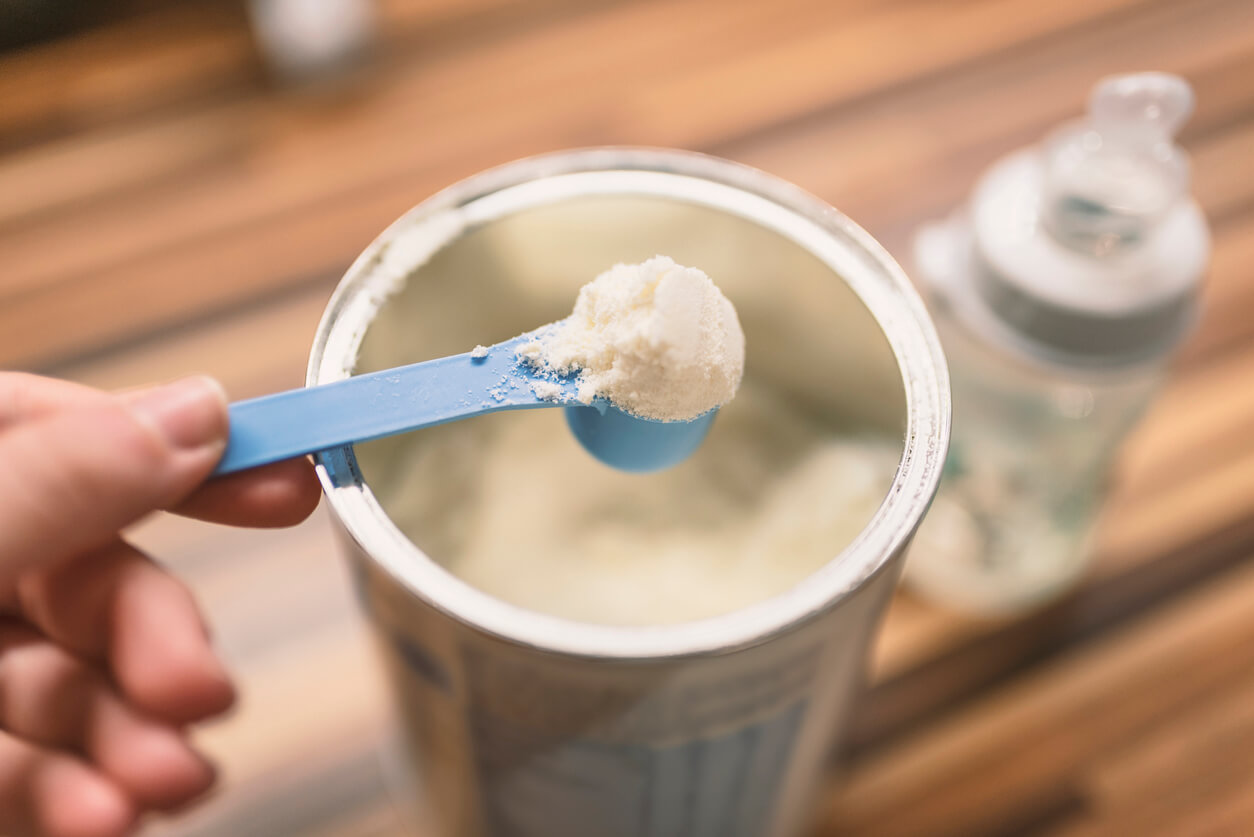Similac, Alimentum and EleCare Baby Formula Recalled After Infant Illness, Death
Editors carefully fact-check all Drugwatch content for accuracy and quality.
Drugwatch has a stringent fact-checking process. It starts with our strict sourcing guidelines.
We only gather information from credible sources. This includes peer-reviewed medical journals, reputable media outlets, government reports, court records and interviews with qualified experts.

On Feb. 17, 2022, Abbott Nutrition recalled three of its baby formula brands after it received reports of infants getting sick with potentially life-threatening bacterial infections.
The recall affects select lots of Similac, EleCare and Alimentum formulas. An Abbott facility in Sturgis, Michigan, manufactured the affected lots, and the FDA has warned parents not to use products from this location.
“Abbott is voluntarily recalling these products after four consumer complaints related to Cronobacter sakazakii or Salmonella Newport in infants who had consumed powder infant formula manufactured in this facility,” Abbott said in its company announcement.
At the time of the recall, there were four cases of bacterial infection potentially linked to the recalled formulas, one Salmonella Newport infection and three Cronobacter sakazakii infections. All the babies were hospitalized and one died.
On Feb. 28, 2022, the FDA announced an additional death from Cronobacter sakazakii in an infant who consumed formula from a specific lot of Similac PM 60/40 that was not included in the original recall. Abbott added this formula to the recall after the FDA notified them.
Parents and caregivers can check if their formula is included in the recall on Abbott’s website by doing a lot number search.
Bacterial Infection Can Be Life-Threatening
Cronobacter bacterial infections can be severe and life threatening, leading to meningitis or sepsis. It can also cause bowel damage that can spread to other parts of the body. Symptoms of infection include fever, jaundice, poor feeding, irritability, crying or very low energy.
Salmonella often causes gastrointestinal problems and severe cases may become fatal. Symptoms include diarrhea, abdominal cramps and fever. Serious cases may present as a high fever, blood in urine or stool, rash, lethargy and headaches.
During testing of its Michigan facility, Abbott found Cronobacter sakazakii in non-product contact areas, but no evidence of Salmonella Newport. The company also said that samples related to the infection complaints tested negative for Cronobacter and Salmonella.
However, the FDA’s inspection of the facility found “several positive Cronobacter sakazakii results from environmental samples … and adverse inspectional observations by the FDA investigators. A review of the firm’s internal records also indicate environmental contamination with Cronobacter sakazakii and the firm’s destruction of product due to the presence of Cronobacter.”
Abbott and the FDA are continuing to investigate.
Abbott Named in Similac Lawsuits
Prior to these recalls, Abbott was already involved in baby formula lawsuits linked to its Similac brand. According to lawsuits, Abbott knew or should have known that Similac could increase the risk of necrotizing enterocolitis (NEC) in premature infants.
NEC is a rare but serious condition that causes intestinal inflammation, leading to tissue death. In severe cases, bacteria from holes in the inflamed intestines can leak into the blood or abdomen leading to serious illness and potentially fatal blood infection.
Studies published as far back as the 1990s found premature babies fed formula have an increased risk of developing NEC. Lawsuits allege that Abbott and Mead Johnson, the maker of Enfamil, failed to properly warn the public about NEC risk in premature babies and didn’t provide proper instructions on how to use their formula.